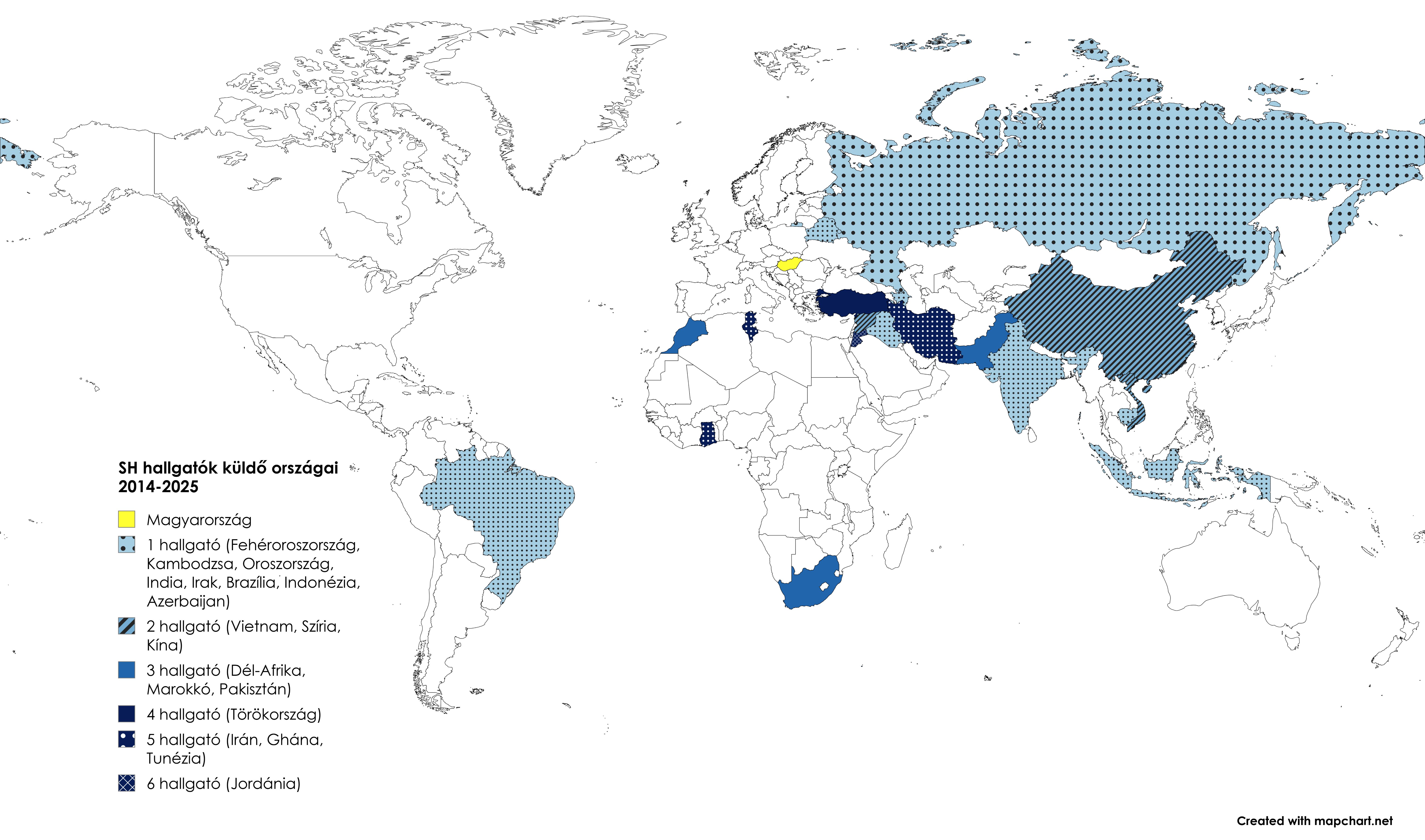History of the Doctoral School
1992 – start of the experimental doctoral programme
1993 – ensurance of autonomy and exclusive rights to universities in awarding scientific degrees under Act LXXX of 1993 on Higher Education
1994 – accreditation of the Doctoral Programme in ‘Enterprise theory and practice’ by the Hungarian Accreditation Committee (number 18/1/1994, 24 May 1994)
2001 – Foundation of Doctoral School from the doctoral programme by the decree of the Hungarian Accreditation Committee of 1 July 2001 (51/2001/IV.3)
2002 - Continuation of the former PhD programme and the right to award PhD degrees for another eight years, as accredited by the Hungarian Accreditation Committee.
2009 - Continuation of the former PhD programme and the right to award PhD degrees for another five years, as accredited by the Hungarian Accreditation Committee.
2013 - The Doctoral School passed an interim accreditation process, the Hungarian Accreditation Committee reconfirmed the rights to award PhD degrees (MAB resolution nr. 2013/12/06-i 636)
2014 - The Doctoral School was accredited till June 25, 2016 (MAB resolution nr. 2014/10/XIV/39/2/746)
2015 - The Doctoral School was accredited till December 31, 2019 (MAB resolution nr. 2015/5/X/3/2/872)
2020 - The Doctoral School changed its name to the Hantos Elemér Doctoral School of Business and Regional Sciences, and was divided into two disciplines: in addition to business and organizational sciences, it is now also possible to obtain a degree in regional sciences at the Doctoral School.
Former leaders of Doctoral School
The programme manager is responsible for the professional content of the programme of the Doctoral School at the Faculty and the Dean of the Faculty is in charge of providing the legal backround to the programme. The implementation of the programme is carried out by the Doctoral Committee of the Faculty (DCF).
Prof. Aladár Nagy, DSc, whose professional expertise and managerial work has contributed considerably to the success of the Doctoral School, was the Head of the Doctoral School and the president of the DCF from its foundation till January 2009. Vice presidents were the late professor László Nagy, professor emeritus János Czabán and professor István Szintay.
Prof. István Szintay took over as the head of the Doctoral School in 2009, and lead the school until 2013.
Prof. Klara Szita Tóthné was in charge for the doctoral studies as the head of the Doctoral school from 2013 to 2015.
In 2015, Prof. Dr. Károly Balaton took over the leadership of the Doctoral School, serving as its head until the end of 2020. In the spring of 2021, the President of the University Doctoral Council appointed Prof. Dr. Tamás Sikos T. as the president of the Doctoral School. He was succeeded on January 1, 2024, by Prof. Dr. Géza Tóth, who is the current head of the Doctoral School.
At the time of the foundation of the Doctoral School, outstanding work was performed by professors and other contributors: the late Prof. Imre Bartha, Professors Lajos Besenyei, János Czabán, László Hársing, István Mihalik, Ferencné Nyitrai, Miklós Rontó, István Szintay, Miklós Szuhay and the late István Vékás, as well as Dr. Fehér Alajos, the director of the Reseach Institute, and Dr. József Varga, an executive of an IT company. Later professors György Kocziszky, Iván Illés, Mária Illés, the late László Tóth, István Polonyi (DE), Tamás Tóth and Dr. Ezsébet Czakó (BCE) also joined.
The secretaries of the Doctoral Committee of the Faculty have been associate professors Mariann Somosi, Krisztina Szegedi, Sándor Karajz and Zoltán Bartha. From 2016 to the present day, Dóra Szendi has been the secretary of the Doctoral Council. Student representatives have also contributed to the success of the School.
PhD graduates
From September 1994 to September 2025, 130 of our students obtained PhD degrees, 20 of whom were foreign nationals. The topics of their disssertations cover a wide range of areas reflecting our main strategic targets. The primary aim of the School is to widen its approach to the interpretation of economic issues, strengthen its interdisciplinary character and modernise methods of analysis. In the process of awarding the PhD degree the senior teaching staff of the university is always working in close cooperation with business leaders and academically qualified representatives of the business world in order to ensure academic acknowledgement in the business world as well.
